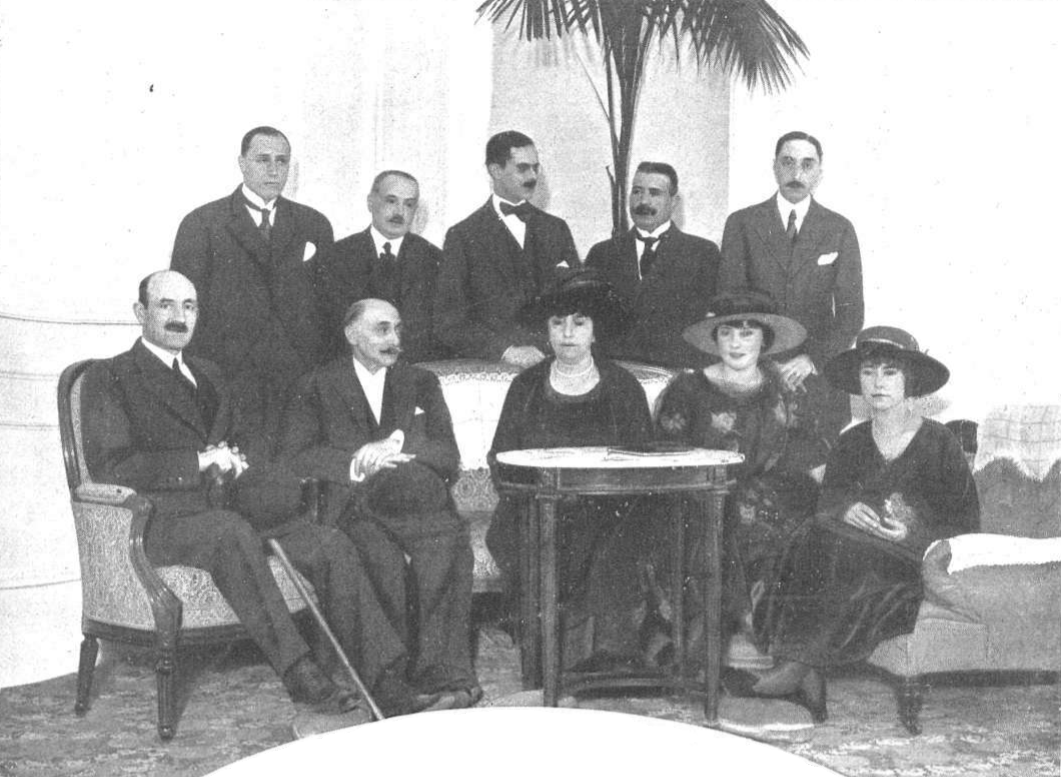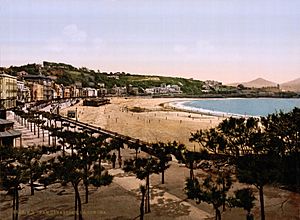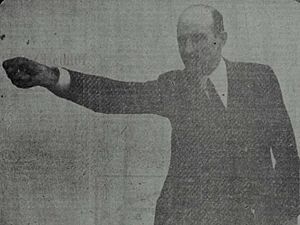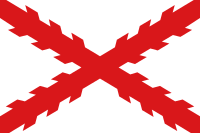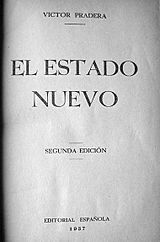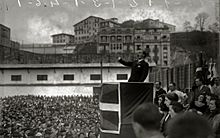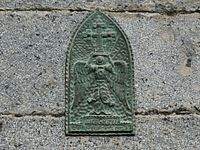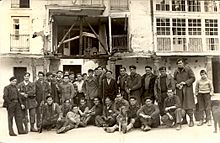Víctor Pradera Larumbe facts for kids
Quick facts for kids
Víctor Pradera Larumbe
|
|
|---|---|
|
|
|
| Born |
Juan Víctor Pradera Larumbe
1872 |
| Died | 1936 (aged 63–64) |
| Nationality | Spanish |
| Occupation | Lawyer |
| Known for | Politician |
| Political party | Partido Católico Tradicionalista, Partido Social Popular, Comunión Tradicionalista |
Juan Víctor Pradera Larumbe (1872–1936) was an important Spanish political thinker and a Carlist politician. He was known for his strong beliefs about how Spain should be governed. He believed in traditional values and a strong monarchy.
Contents
Early Life and Education
Víctor Pradera's family came from France. His grandfather moved to Spain from a Basque town. Víctor's father, Francisco Pradera, lived in Cuba for 16 years. He returned to Spain with money and married Filomena Larumbe from Pamplona. Her father had supported the Carlists in a war and almost faced execution.
Víctor was the first of four sons. In 1879, his family moved to San Sebastián. His father ran a construction business there. Víctor finished high school in San Sebastián in 1887. He then studied in Bordeaux, France, and Bilbao, Spain. He prepared to become an engineer.
Later, Pradera moved to Madrid to study engineering. The exact year he finished is not known. In 1897, he returned to Gipuzkoa. He worked in his father's paper mill business in Tolosa. He was a successful manager. He later joined the family business with a larger company called Papelera Española.
Around 1900, he started studying law in Madrid. He studied for two years. After graduating, he opened a law office in San Sebastián. He also worked as an Inspector General for engineers. He later earned a PhD in law in Madrid. In 1899, Pradera married María Ortega. They had four children. His son, Javier, became a famous politician. His grandson, Javier Pradera, was a well-known journalist.
Joining the Carlists
During his college years, Pradera joined Catholic groups. He became very interested in politics. He grew up in a more liberal family. But he became a Carlist because of his studies. He called himself a "scientific Carlist." This meant he chose Carlism based on his ideas, not just family tradition.
Pradera was known as a good speaker. In the 1899 election, he ran as a Carlist candidate in Tolosa. He won, defeating the government's candidate. He became a speaker for the small Carlist group in the Spanish parliament.
After Spain lost the Spanish-American War in 1898, many people wanted big changes. Pradera was one of these "regeneracionistas." He often argued with other politicians in parliament. He was re-elected in 1901. He continued to challenge liberal politicians and new groups like republicans.
In 1904, Pradera was elected to the Provincial Council of Gipuzkoa. He was part of a new generation of Carlist leaders. The Carlist leader, Carlos VII, and party head, Marqués de Cerralbo, supported these young activists. They wanted to build a modern Carlist movement.
Political Differences
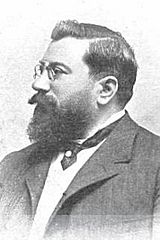
After his time on the council, Pradera focused on his family, business, and writing. He stayed involved in politics. But his relationship with local Carlist leaders became difficult. In 1910, he supported a different candidate in an election. Because of this, he was removed from the party.
He was allowed back into the party in 1912. Pradera continued to give speeches at public meetings. He spoke about many topics. He especially focused on opposing Basque nationalist ideas. He became known as an expert on these issues across Spain. In 1917, he was asked to join a committee. This committee discussed giving more power to Catalonia.
Pradera was elected to the Spanish parliament again in 1918. He became the main Carlist speaker. He became friends with Antonio Maura, another politician. But Pradera did not like big political alliances. He believed Spain needed a strong, traditional change.
At this time, the Carlist movement faced problems. There was a conflict between its main thinker, Juan Vázquez de Mella, and the Carlist leader, Jaime. Pradera was friends with de Mella and agreed with his ideas. He joined de Mella's new party in 1919. He tried to win elections but was not successful.
In the early 1920s, Pradera's friendship with de Mella ended. Some say they disagreed on how to unite right-wing parties. Others believe de Mella thought Pradera's ideas were too simple. One theory is they disagreed on how to deal with the dictator Miguel Primo de Rivera. Pradera decided to go his own way. De Mella, who was very ill, slowly left public life.
Social-Catholic Ideas
In 1922, Pradera started a new political group called Partido Social Popular. He wanted it to be a broad alliance of different groups. It was based on Catholic social teachings. These ideas aimed to solve social problems and oppose the rise of socialism. The party's main goals were: Religion, Homeland, State, Property, and Family.
This party did not believe in popular elections. Instead, it supported a "corporative" system. In this system, different groups like workers or businesses would represent people. Pradera believed this system would help solve social issues. He also preferred a monarchy over other forms of government.
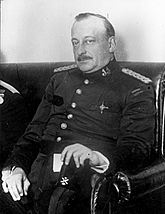
Most members of Pradera's party welcomed the dictatorship of Miguel Primo de Rivera. Pradera was very excited about it. Primo de Rivera asked Pradera for advice. Pradera suggested that the new government should ban all political parties. He also wanted a corporative system and a strong regional state. He wrote four reports for the dictator with these ideas.
Pradera supported the dictatorship in newspapers. He was an official advisor to Primo de Rivera until 1927. Then he joined the National Consultative Assembly. He worked on a new constitution. He wanted it to fit his corporative ideas.
Pradera's ideas were very important to Primo de Rivera's rule. Some people even see Pradera as a key influence on the dictator. However, Pradera's relationship with Primo de Rivera worsened in 1924. Pradera felt the dictator was too focused on himself. He also thought the dictatorship was not changing Spain enough. He disagreed with some of Primo's policies. Even so, Pradera supported the regime until it ended. Later, Pradera saw the dictatorship as a brief period of calm before the chaos of the Second Spanish Republic.
Returning to Carlism
In the 1931 election, Pradera was supposed to join a Catholic-traditionalist group. But he refused to work with Basque nationalists. He decided not to run. He then became closer to the main Carlist party. After the death of the Carlist leader Don Jaime in 1932, Pradera decided to rejoin the united Carlist organization. This was called Comunión Tradicionalista. He became part of its leadership.
He also became the head of the new Council of Culture. This made him the official intellectual leader of the Carlist movement. In 1933, he was elected to the Constitutional Guarantees Tribunal of Spain. This was a high court. He tried to become its president in 1934 but did not succeed. In 1936, he joined the Academy of Jurisprudence and Legislation.
Pradera was not very focused on who should be the next king. The new Carlist leader, Alfonso Carlos, was old and had no children. Pradera thought about recognizing Don Juan as the Carlist king. Within the Carlist party, Pradera supported a broad alliance with other monarchists. He joined several important right-wing groups. He helped create the manifesto for one of these groups, Bloque Nacional. Pradera continued to oppose Christian-democratic ideas. His strong criticism of one party, CEDA, even made Carlist leaders ask him to be more moderate.
At first, Carlist leaders agreed with Pradera's idea of a monarchist alliance. But many ordinary Carlists did not want to mix with other royalist groups. When the Carlist leader changed, Pradera and the entire leadership group resigned. Pradera continued to work on his ideas. He focused on fighting against secularism, democracy, socialism, and nationalism. He wrote many articles and books about these topics.
Political Ideas
Pradera's political ideas developed over 40 years. They were finally put together in his book, El Estado Nuevo, published in 1935. His ideas were greatly influenced by Juan Vázquez de Mella. Pradera also drew inspiration from papal writings, Charles Maurras, Juan Donoso Cortés, and Thomas Aquinas.
Pradera believed that human rights only exist when combined with duties to God. He thought that people naturally form different groups. These include families, guilds (like trade unions), and regions. These groups work together. Above them is the nation. A nation is a society made up of these smaller societies.
He believed a monarchy was the best way to express a nation. The King and the Church would ensure its unity. The King's power would be limited by divine order. It would also be limited by the power of the nation's parts. Pradera thought that political parties divided society. He believed parliament should have representatives from six main classes. It should also have delegates from different state bodies.
The King would create laws. Parliament and a council would help. The state would not be too involved in daily life. Its main jobs would be to protect the country, keep order, and ensure justice. Catholic principles would guide the state. A corporative state would solve social problems. It would also manage how wealth is shared. How this vision would be achieved was not always clear.
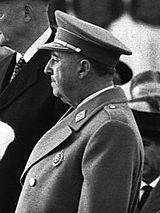
El Estado Nuevo was very popular among Carlists. Pradera became their most important thinker. Other right-wing groups in Spain also respected his work. Some scholars believe Pradera was a key influence on Francisco Franco. Franco later became the dictator of Spain. They point to Pradera's book as a guide for Franco's state. However, other studies do not mention a direct link between Pradera and Francoism.
Today, scholars classify Pradera's ideas in different ways. Most agree his vision was a mix of Catholic social teaching and corporatism. His ideas were similar to those in Austria under Dolfuss and Portugal under Salazar. Other terms used to describe his ideas include traditionalism, organicism, and proto-fascism.
Views on Regionalism
Pradera's ideas about regions were a very important part of his theory. They also played a big role in his political actions. Today, many Spanish people, especially Basques, know Pradera mainly for his strong views on this topic. They often see him as an enemy of regional groups.
From the start of his career, Pradera supported traditional regional rights called "fueros." He saw himself as a strong regionalist. In his political vision, regions were key parts of a nation. They had their own laws, economies, and social customs. He suggested to Primo de Rivera that Spain should be a strong regional state.
However, Pradera believed that fueros were an agreement between a region and the Spanish state. They were not a way for regions to be completely separate. So, he always fought against any ideas that seemed to promote separatism or too much autonomy. He opposed Basque nationalist ideas. He also fought against plans for Basque-Navarrese autonomy during the Republic. He was especially against including Navarre in these plans.
Pradera did not believe that Basques and Catalans had a separate political identity. He said they were part of the Spanish nation. He was very upset by any racist ideas in Basque nationalism. He saw these groups as "pueblos" (peoples) that belonged to the Spanish political nation. He worked hard to show that nationalist ideas were invented myths. He argued that Basques had never been a single cultural or political group.
Fighting Basque and Catalan political goals became a major part of Pradera's work. He was very concerned about the unity of Spain. Because of this, he became a main opponent of Basque nationalists. They accused him of being too Spanish and overly patriotic.
Arrest and Death
Pradera helped plan the uprising against the Spanish Republic in 1936. He talked with other royalist groups in Navarre and the Basque provinces. The exact details of his involvement are not fully known. In February 1936, he refused an offer from Franco to join him in the Canary Islands. Pradera knew the uprising was coming. He wanted to stay in San Sebastián. He also did not want to leave his pregnant daughter.
When the uprising began, Pradera was in San Sebastián. The uprising failed there. He found himself cut off from the areas controlled by the Nationalists. In early August, Basque militia arrested him. He was held in Ondarreta prison. His son Javier was also arrested and joined him there.
Stories about his last days are different. Most accounts say he was tried by a special court and sentenced to death. Other stories suggest that the Republican militia stormed the prison. They feared the Nationalists would soon take the city and free the prisoners. On September 6, Pradera was taken to Polloe cemetery with other prisoners. He was executed. His son was also executed shortly after. In 1949, Franco gave Pradera the title of Count of Pradera after his death. This title is still used today.
Images for kids
See also
 In Spanish: Víctor Pradera para niños
In Spanish: Víctor Pradera para niños
 | George Robert Carruthers |
 | Patricia Bath |
 | Jan Ernst Matzeliger |
 | Alexander Miles |


